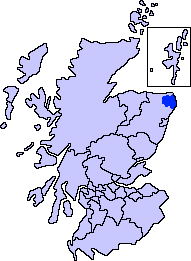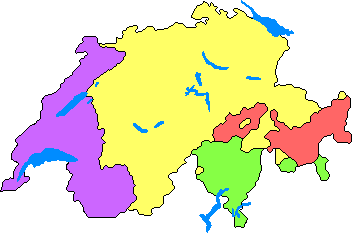|
Eugen Dieth
Eugen Dieth (18 November 1893, in Neukirch an der Thur – 24 May 1956, in Zollikon) was a Swiss linguist, phonetician and dialectologist. He is well known for his work in English and German phonetics, and for co-initiating the Survey of English Dialects. Biography Eugen Dieth studied General Linguistics, English and German at the University of Zurich and the University of Geneva. He got his PhD in 1919 with a dissertation on Middle English syntax. Between 1922 and 1927 he was ''lecturer in German'' in Aberdeen. In 1927 he became Professor extraordinarius and in 1947 Professor ordinarius for English, Old Norse and General Phonetics at the University of Zurich. He founded the Phonetics Laboratory of the University of Zurich in 1935. Between 1927 and 1936 he worked as a part-time editor for the Schweizerisches Idiotikon and between 1934 and his unexpected death from a stroke in 1956 he was the director of the Phonogram Archives of the University of Zurich. He married Hilde Martha ... [...More Info...] [...Related Items...] OR: [Wikipedia] [Google] [Baidu] |
Neukirch An Der Thur
Neukirch an der Thur is a village and former municipality in the canton of Thurgau, Switzerland. In 1996 the municipality was merged with the other, neighboring municipalities Buhwil, Kradolf and Schönenberg an der Thur to form a new and larger municipality Kradolf-Schönenberg. Neukirch an der Thur is first mentioned in 1291 as ''Eliswil''. In 1296 it was mentioned as ''Sêliswille'', which remained its name until the Protestant Reformation The Reformation (alternatively named the Protestant Reformation or the European Reformation) was a major movement within Western Christianity in 16th-century Europe that posed a religious and political challenge to the Catholic Church and in .... After 1520 it was known as ''Nüwenkilchen''. The population in 1850 was 2,546. It decreased in 1900 to 1,921 and continued to drop so that in 1950 it was 1,879. By 1990 it had increased slightly to 1,997. References Former municipalities of Thurgau Villages in Switzerland [...More Info...] [...Related Items...] OR: [Wikipedia] [Google] [Baidu] |
Professor
Professor (commonly abbreviated as Prof.) is an Academy, academic rank at university, universities and other post-secondary education and research institutions in most countries. Literally, ''professor'' derives from Latin as a "person who professes". Professors are usually experts in their field and teachers of the highest rank. In most systems of List of academic ranks, academic ranks, "professor" as an unqualified title refers only to the most senior academic position, sometimes informally known as "full professor". In some countries and institutions, the word "professor" is also used in titles of lower ranks such as associate professor and assistant professor; this is particularly the case in the United States, where the unqualified word is also used colloquially to refer to associate and assistant professors as well. This usage would be considered incorrect among other academic communities. However, the otherwise unqualified title "Professor" designated with a capital let ... [...More Info...] [...Related Items...] OR: [Wikipedia] [Google] [Baidu] |
1956 Deaths
Events January * January 1 – The Anglo-Egyptian Sudan, Anglo-Egyptian Condominium ends in Sudan. * January 8 – Operation Auca: Five U.S. evangelical Christian Missionary, missionaries, Nate Saint, Roger Youderian, Ed McCully, Jim Elliot and Pete Fleming, are killed for trespassing by the Huaorani people of Ecuador, shortly after making contact with them. * January 16 – Egyptian leader Gamal Abdel Nasser vows to reconquer Palestine (region), Palestine. * January 25–January 26, 26 – Finnish troops reoccupy Porkkala, after Soviet Union, Soviet troops vacate its military base. Civilians can return February 4. * January 26 – The 1956 Winter Olympics open in Cortina d'Ampezzo, Italy. February * February 11 – British Espionage, spies Guy Burgess and Donald Maclean (spy), Donald Maclean resurface in the Soviet Union, after being missing for 5 years. * February 14–February 25, 25 – The 20th Congress of the Communist Party of the Soviet Union is held in Mosc ... [...More Info...] [...Related Items...] OR: [Wikipedia] [Google] [Baidu] |
1893 Births
Events January–March * January 2 – Webb C. Ball introduces railroad chronometers, which become the general railroad timepiece standards in North America. * Mark Twain started writing Puddn'head Wilson. * January 6 – The Washington National Cathedral is chartered by Congress; the charter is signed by President Benjamin Harrison. * January 13 ** The Independent Labour Party of the United Kingdom has its first meeting. ** U.S. Marines from the ''USS Boston'' land in Honolulu, Hawaii, to prevent the queen from abrogating the Bayonet Constitution. * January 15 – The ''Telefon Hírmondó'' service starts with around 60 subscribers, in Budapest. * January 17 – Overthrow of the Kingdom of Hawaii: Lorrin A. Thurston and the Citizen's Committee of Public Safety in Hawaii, with the intervention of the United States Marine Corps, overthrow the government of Queen Liliuokalani. * January 21 ** The Cherry Sisters first perform in Marion, Iowa. ** The T ... [...More Info...] [...Related Items...] OR: [Wikipedia] [Google] [Baidu] |
Harold Orton
Harold Orton (23 October 1898 – 7 March 1975) was a British dialectologist and professor of English Language and Medieval Literature at the University of Leeds. Early life Orton was born in Byers Green, County Durham, on 23 October 1898 and was educated at King James I Grammar School, in Bishop Auckland, and at the University of Durham. He left university in 1917 to enrol in the Durham Light Infantry in which he was commissioned as a lieutenant. He was wounded severely in 1918, never regaining full use of his right arm, and was invalided out of the army in 1919. He insisted to army surgeons that his arm not be amputated. Academic career After leaving the army, in 1918 Orton went to Merton College, Oxford, where he studied under Henry Cecil Kennedy Wyld and Joseph Wright, author of the ''English Dialect Dictionary'' (McDavid, 1976). His thesis from Oxford, on the dialect of his native Byers Green, was later published as a book. He then spent several years on the staff of Upp ... [...More Info...] [...Related Items...] OR: [Wikipedia] [Google] [Baidu] |
Buchan
Buchan is an area of north-east Scotland, historically one of the original provinces of the Kingdom of Alba. It is now one of the six committee areas and administrative areas of Aberdeenshire Council, Scotland. These areas were created by the council in 1996, when the Aberdeenshire council area was created under the Local Government etc (Scotland) Act 1994. The council area was formed by merging three districts of the Grampian Region: Banff and Buchan, Gordon and Kincardine and Deeside. The committee area of Buchan was formed from part of the former district of Banff and Buchan. Etymology The genesis of the name ''Buchan'' is shrouded in uncertainty, but may be of Pictish origin. The name may involve an equivalent of Welsh ''buwch'' meaning "a cow". American academic Thomas Clancy has noted cautiously the similarity between the territory names ''Buchan'' and ''Marr'' to those of the Welsh commotes ''Cantref Bychan'' and ''Cantref Mawr'', meaning "small-" and "large-commote ... [...More Info...] [...Related Items...] OR: [Wikipedia] [Google] [Baidu] |
Phonetic Transcription
Phonetic transcription (also known as phonetic script or phonetic notation) is the visual representation of speech sounds (or ''phones'') by means of symbols. The most common type of phonetic transcription uses a phonetic alphabet, such as the International Phonetic Alphabet. Versus orthography The pronunciation of words in all languages changes over time. However, their written forms (orthography) are often not modified to take account of such changes, and do not accurately represent the pronunciation. Words borrowed from other languages may retain the spelling from the original language, which may have a different system of correspondences between written symbols and speech sounds. Pronunciation can also vary greatly among dialects of a language. Standard orthography in some languages, such as English and Tibetan, is often irregular and makes it difficult to predict pronunciation from spelling. For example, the words ''bough'', ''chough'', ''cough'', ''though'' and ''through' ... [...More Info...] [...Related Items...] OR: [Wikipedia] [Google] [Baidu] |
Swiss German
Swiss German (Standard German: , gsw, Schwiizerdütsch, Schwyzerdütsch, Schwiizertüütsch, Schwizertitsch Mundart,Because of the many different dialects, and because there is no defined orthography for any of them, many different spellings can be found. and others) is any of the Alemannic dialects spoken in the German-speaking part of Switzerland and in some Alpine communities in Northern Italy bordering Switzerland. Occasionally, the Alemannic dialects spoken in other countries are grouped together with Swiss German as well, especially the dialects of Liechtenstein and Austrian Vorarlberg, which are closely associated to Switzerland's. Linguistically, Alemannic is divided into Low, High and Highest Alemannic, varieties all of which are spoken both inside and outside Switzerland. The only exception within German-speaking Switzerland is the municipality of Samnaun, where a Bavarian dialect is spoken. The reason Swiss German dialects constitute a special group is their a ... [...More Info...] [...Related Items...] OR: [Wikipedia] [Google] [Baidu] |
Albert Bachmann (philologist)
Johann Albert Bachmann (12 November 1863, in Hüttwilen – 30 January 1934, in Samedan) was a Swiss lexicographer and dialectologist, professor for Germanic philology at Zürich University from 1896. From 1892 he was an editor of the ''Schweizerisches Idiotikon'' dictionary, acting as editor-in-chief from 1896 until his death. Bachmann specialized on Swiss German dialects. He edited the series ''Beiträge zur Schweizerdeutschen Grammatik'' (20 vols) and founded, together with Louis Gauchat, the Phonographic Archive of Zurich University in 1913. Works *''Beiträge zur Geschichte der schweizerischen Gutturallaute.'' Genossenschafts-Buchdruckerei, diss. Zürich 1886. *(ed., with Samuel Singer): ''Deutsche Volksbücher aus einer Zürcher Handschrift des fünfzehnten Jahrhunderts.'' Litterarischer Verein in Stuttgart, Tübingen 1889 (Bibliothek des Litterarischen Vereins in Stuttgart 185). *(ed.): ''Morgant der Riese.'' Litterarischer Verein in Stuttgart, Tübingen 1890 (Bibliothek d ... [...More Info...] [...Related Items...] OR: [Wikipedia] [Google] [Baidu] |
Phonogram Archives Of The University Of Zurich — ℗ stands for ''phonogram''
{{Disambig ...
Phonogram may refer to: * A sound recording – see Geneva Phonograms Convention * ''Phonogram'' (comics), a comic book by Kieron Gillen and Jamie McKelvie * Phonogram (linguistics), a grapheme which represents a phoneme or a combination of phonemes * Phonogram Inc., a music label holding company which was launched in 1971 * A phonogram, the sound recording element of a phonorecord See also * Phonograph, a device for the mechanical recording and reproduction of sound * Phonograph record * Sound recording copyright symbol The sound recording copyright symbol or phonogram symbol, represented by the graphic symbol , is the copyright symbol used to provide notice of copyright in a sound recording (phonogram) embodied in a phonorecord ( LPs, audiotapes, cassette tap ... [...More Info...] [...Related Items...] OR: [Wikipedia] [Google] [Baidu] |
Stroke
A stroke is a medical condition in which poor blood flow to the brain causes cell death. There are two main types of stroke: ischemic, due to lack of blood flow, and hemorrhagic, due to bleeding. Both cause parts of the brain to stop functioning properly. Signs and symptoms of a stroke may include an inability to move or feel on one side of the body, problems understanding or speaking, dizziness, or loss of vision to one side. Signs and symptoms often appear soon after the stroke has occurred. If symptoms last less than one or two hours, the stroke is a transient ischemic attack (TIA), also called a mini-stroke. A hemorrhagic stroke may also be associated with a severe headache. The symptoms of a stroke can be permanent. Long-term complications may include pneumonia and loss of bladder control. The main risk factor for stroke is high blood pressure. Other risk factors include high blood cholesterol, tobacco smoking, obesity, diabetes mellitus, a previous TIA, end-st ... [...More Info...] [...Related Items...] OR: [Wikipedia] [Google] [Baidu] |





.jpg)